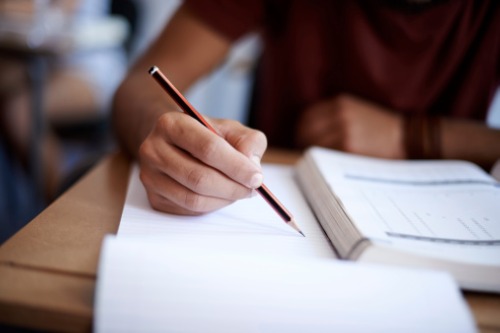
Several prominent researchers have weighed in on the PISA 2018 tests with insights on the results' implications for education in Australia.
The results found that Australia’s 15-year-olds have fallen to meet the OECD average in mathematics skills – for the first time in the assessment’s history.
According to the data, 54% of students attained the National Proficient Standard in mathematical literacy, compared to between 58% and 91% of students in countries that performed higher than Australia, and equal to the OECD average.
The report also highlighted the socioeconomic disparity, revealing that students from higher SES backgrounds performed at a higher level across all domains than those from lower SES backgrounds.
Metropolitan schools also outperformed less well-off regional schools and provincial schools across all domains. However, regional schools outperformed provincial schools except in scientific literacy, where there was no significant difference.
‘An equity problem’
Dr Steven Lewis, a Research Fellow at Deakin University, and an expert on education policy and large-scale tests like PISA, said the figures “often indicate an equity problem”.
He says that we should not rush to conclusions on the basis of tests like PISA, but that the latest results do show worrying trends.
"As with all standardised tests, the results of PISA 2018 should be treated with caution, and we should not rush to make premature conclusions," Dr Lewis said.
"Despite these caveats, and although Australian students’ performance remains above the OECD average in reading and science, and equal to it in mathematics, there are still worrying trends."
He said rather than point fingers at teachers and schools, society should ask how it can better equip schools and teachers to support all students.
Rethink of Indigenous education needed
When it came to the performance of Indigenous students across all assessment domains, outcomes were significantly lower than their non-Indigenous peers.
Approximately one-third of Indigenous students met the National Proficient Standard in each domain compared with approximately two-thirds of non-Indigenous students.
Dr Kevin Lowe and Dr John Guenther, experts on Indigenous education at Flinders University, say that if we're worried about the recent PISA results, we should be gravely concerned about the state of Indigenous education in Australia.
"The report treats Indigenous student performance in Australia as comparable to countries like Thailand, Mexico and Cyprus – countries which are ranked well below the OECD average,” Dr Lowe and Dr Guenther wrote in a joint statement.
“As bad as the results are, the PISA data masks an even bigger problem for rural and remote Indigenous students, who are excluded from the data.”
Despite the significant investment of Closing the Gap over the last decade, Dr Lowe and Dr Guenther said there remains a need to “conceptually rethink the delivery of and investment in education for all Indigenous students across Australia”.
‘Classroom discipline needs to be addressed’
Australia ranked 70th out of all 77 PISA 2018 participant countries/economies on this classroom disciplinary dimension.
Forty-three percent of Australian students reported that there is noise and disorder in their language-of-instruction lessons in every or most lessons, which is the 5th highest percentage among all countries/economies.
Associate Professor Jihyun Lee of UNSW Sydney is an expert on large-scale assessments like PISA and has spent time researching at the OECD in Paris. She says the results highlight the issue of classroom discipline in Australian schools.
"The PISA 2018 report shows that Australia will need to seriously address the issue of classroom discipline," Associate Professor Lee said.
"Simply put, if students don’t listen to what the teacher says, if there is noise and disorder in a learning space, and if a teacher has to wait for a long time for students to quiet down, how can we expect students to learn effectively in school?"
Some key insights
Professor John Fischetti of the University of Newcastle points to some of the highlights of the report that stood out for him, focusing on Australia's rankings, China's maths performance, disadvantaged students in Australia, and the resilience of disadvantaged students.
"There were a few things that drew my attention. Firstly, the rankings showed Australian students performing 16th in the world in reading, 29th in maths and 17th in science,” Professor Fischetti said.
"Secondly, China has topped the world in maths and science results for 15-year olds and performed impressively with their subgroup of 10% disadvantaged students included in the mix."
Professor Fischetti’s third point was that Australian students categorised as disadvantaged generally scored in the top quarter of reading performance, cooperation, discipline and growth mindset.
"Fourthly Australian data showed that the country had one of the largest gaps in the world in connecting student resilience of disadvantaged students to parent support,” he said.
Federal Education Minister Dan Tehan said states and territories must refocus on the basics of literacy and numeracy.
"Next week’s Education Council meeting provides the opportunity to reset the national education agenda and we must be bold in doing so," Minister Tehan said.
"Australia’s results in the PISA tests are very disappointing, especially in mathematics and science. These results should have alarm bells ringing.”
Minister Tehan said Australia should be a leader in school education.
“Our students should be ranked among the best in the world. We should not accept anything less,” he said.
"The time has come for us to change direction.”


